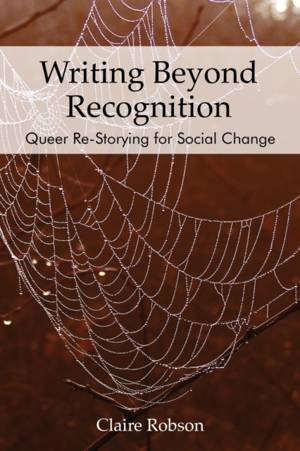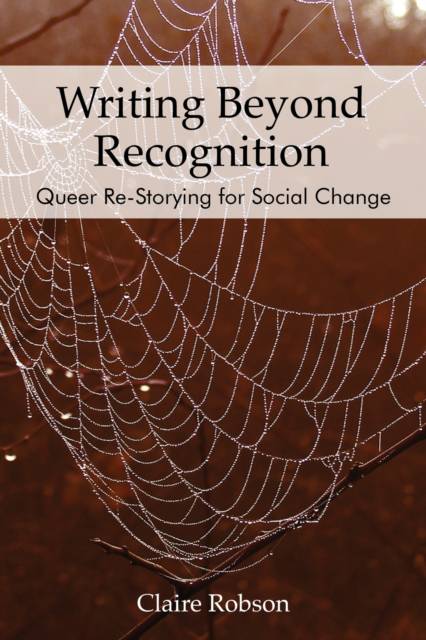
- Afhalen na 1 uur in een winkel met voorraad
- Gratis thuislevering in België vanaf € 30
- Ruim aanbod met 7 miljoen producten
- Afhalen na 1 uur in een winkel met voorraad
- Gratis thuislevering in België vanaf € 30
- Ruim aanbod met 7 miljoen producten
Zoeken
Omschrijving
Writing Beyond Recognition: Queer Re-Storying for Social Change documents and analyzes the insidious ways heteronormativity produces homophobia and heterosexism, including how this operates and is experienced by those who identify as gay, lesbian, bisexual, transgendered and queer. Using critical arts research practices read through queer and feminist theories and perspectives, the chapters in the book describe how participants who identified as lesbian, gay, bisexual and transgendered gained critical insights by learning to write and read about their experiences in new ways. Their revised queer stories function to enable a movement beyond merely recognizing to appreciating and understanding those differences. Robson offers a powerful argument about how everyone is narrated by and through discourses of gender and sexuality. Therefore, the content of the book is directed at all readers, not only those who identify as gay, lesbian, bisexual, transgendered or queer. The book will be important as a text in any course or area of study that is focused on inclusive education, cultural studies in education, critical arts research methods, gender and sexuality studies, and critical literacy approaches in education. Perfect for courses such as: Qualitative Research Methods Social Justice Ethnography Critical Qualitative Inquiry Gender, Sexuality, and Women's Studies Participatory Action Research Arts-Based Research Writing Autobiography Curriculum Studies Teacher Education Cultural Studies Reading and Literacy Education Community Education Adult Education
Specificaties
Betrokkenen
- Auteur(s):
- Uitgeverij:
Inhoud
- Aantal bladzijden:
- 125
- Taal:
- Engels
- Reeks:
Eigenschappen
- Productcode (EAN):
- 9781975504182
- Verschijningsdatum:
- 11/11/2020
- Uitvoering:
- Hardcover
- Formaat:
- Genaaid
- Afmetingen:
- 155 mm x 231 mm
- Gewicht:
- 362 g

Alleen bij Standaard Boekhandel
+ 522 punten op je klantenkaart van Standaard Boekhandel
Beoordelingen
We publiceren alleen reviews die voldoen aan de voorwaarden voor reviews. Bekijk onze voorwaarden voor reviews.











